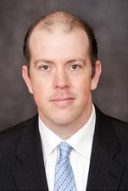Brian Richardson ('92) Profile

In Fortune 500 business, a company’s success is largely determined by its ability to complete projects. Generally speaking, project work is a matter of managing the scope, budget, and schedule of intended outcomes. It is surprising, then, that about 70% of projects fail to meet one or more of these key objectives. An even higher percentage fail to provide the return on investment (ROI) intended for the project. The main reason projects miss their goals? People-related issues: cultural resistance, individual resistance to change, poor communication, skill acquisition, misaligned incentives, organization structural problems, and so on.
Correcting these people-related issues is where Brian Richardson, 1992 Miami and honors alumnus and owner of Richardson Consulting Group, steps in. His company is a management consulting firm, which focuses on helping Fortune 500 clients improve human performance and manage organizational change. Since 2003, Brian’s consulting business has worked with clients to create positive, lasting change and successfully complete projects. Brian’s independent consulting efforts follow a decade of consulting in a similar capacity for Accenture, a large global consulting firm.
The lure of consulting work, Brian says, lies in the interdisciplinary nature of it. Key skills include problem-solving, a high level of collaboration, the ability to relate to many different types of people, and holistic thinking. Brian notes that while he could not predict or foresee the tremendous impact of technology on his field when he started (back in the early days of email), “the foundational things – the ability to look at a problem analytically, apply different perspectives, and relate to people in meaningful ways – don’t change, [they] only become more and more important as technology changes become more rapid and pervasive.”
For Brian, his abilities in these “foundational things” are rooted in his liberal education at Miami. A member of the Western College Program, Brian earned an Interdisciplinary degree, with a focus in American literature and culture. He took part in the Scholar Leader Program, the Urban Leadership Internship Program, and the Honors Program, while also becoming involved in a number of other activities, including running a non-profit concert series called the OxAid Benefit Concert Series for several years.
Brian’s interdisciplinary studies eventually led him to take a course on Czech theatre with Miami Theatre professor, Dr. Howard Blanning. Brian had originally planned on going to law school after he graduated, but by the time he became a senior, he was leaning away from that prospect. Serendipitously, this left his post-undergraduate plans open, and when Howard encouraged Brian to coordinate a student program that sent Miami students to the Czech Republic to teach, travel, and immerse themselves in Czech culture, he jumped on the opportunity.
Through this program coordination role, Brian ended up teaching English in the Czech Republic for a number of months in 1992, when the country was in the midst of transition from communism to private property, free enterprise and liberal democracy. While he had no special expertise in this regard, he found a number of individuals and institutions were interested in his perspective based on his cultural background. This led to some ad-hoc, pseudo-consulting work where he was able to work with individuals and institutions to apply his analytical and problem-solving skills to a number of unique situations and issues brought about by the historic transition.
Not surprisingly, this experience had a serious impact on Brian’s life trajectory. When he arrived back in the US, he pursued employment in the consulting sector, starting with Accenture in early 1993 and continuing with the startup of his own firm. Though he had not yet considered a career in consulting when he graduated Miami in 1992, he’s spent nearly twenty years in the field, and has found it to be a great fit for interests and skills started to build as an undergrad.
Laughing a little to himself, Brian remarks that while he certainly didn’t expect it, he can trace a “semi-straight line from a class on Czech theatre to a career in consulting.” Reflecting on this, he says he has recently been talking with a number of his young cousins who are graduating high school and heading to college. Noting the tension he sees in their college decisions between a vocational or liberal arts approach to their education, he has encouraged them to take “a long term perspective on where [they’ll] end up in [their] careers.” As he notes, “really successful people exhibit certain behaviors – internal drive, ability to collaborate, detail orientation, perseverance, resilience.” His advice? “Do whatever [you’ll] do really well rather than just pursuing something because it will lead to a specific job opportunity. If a topic interests you, the opportunities will present themselves.”

